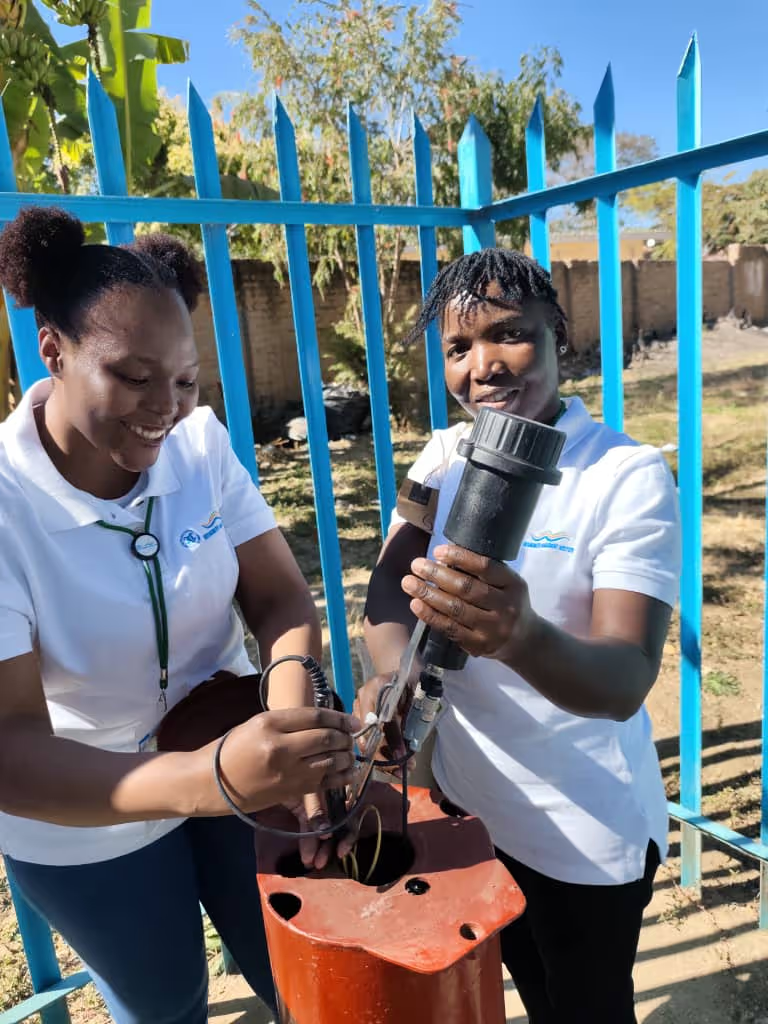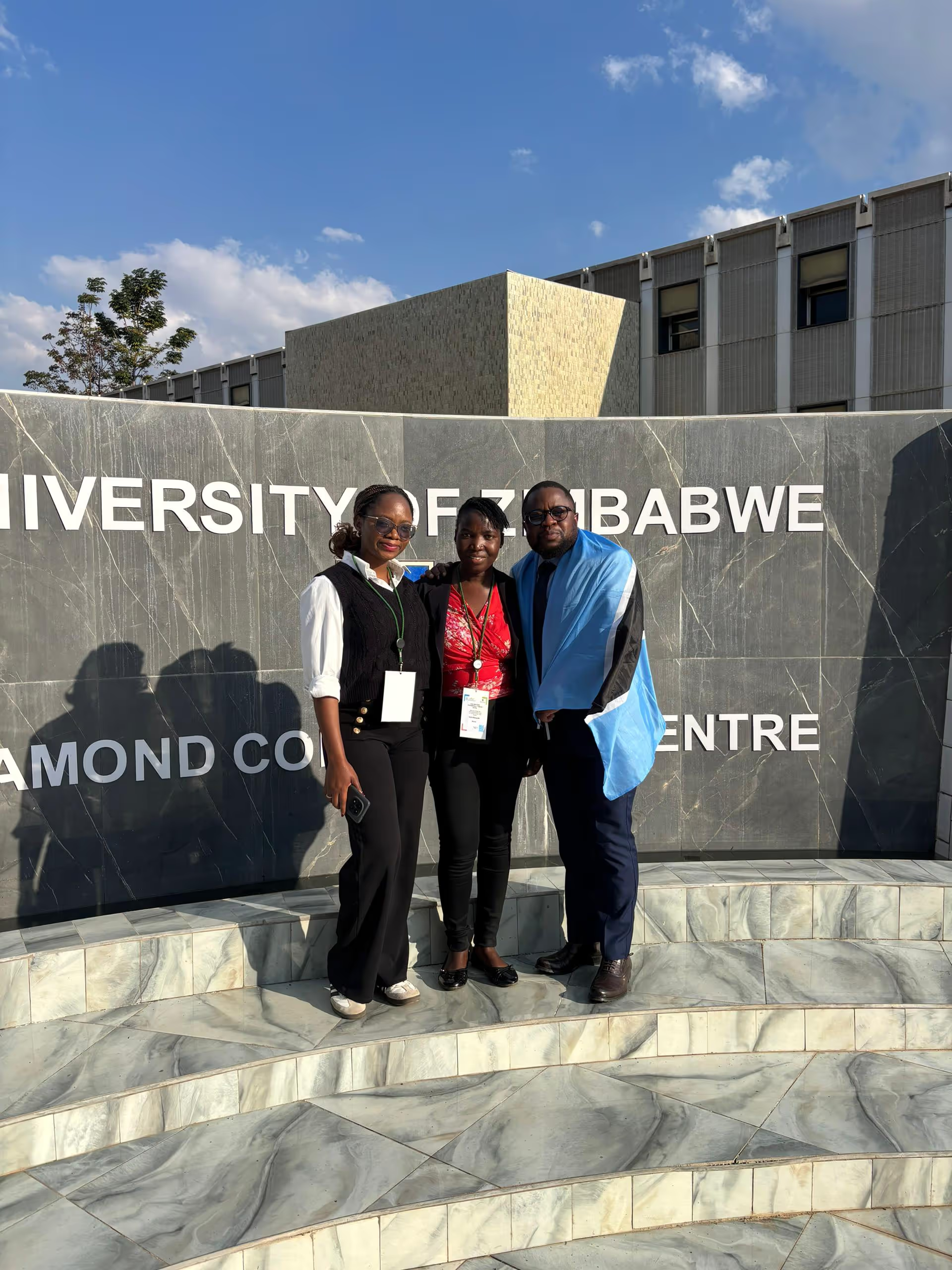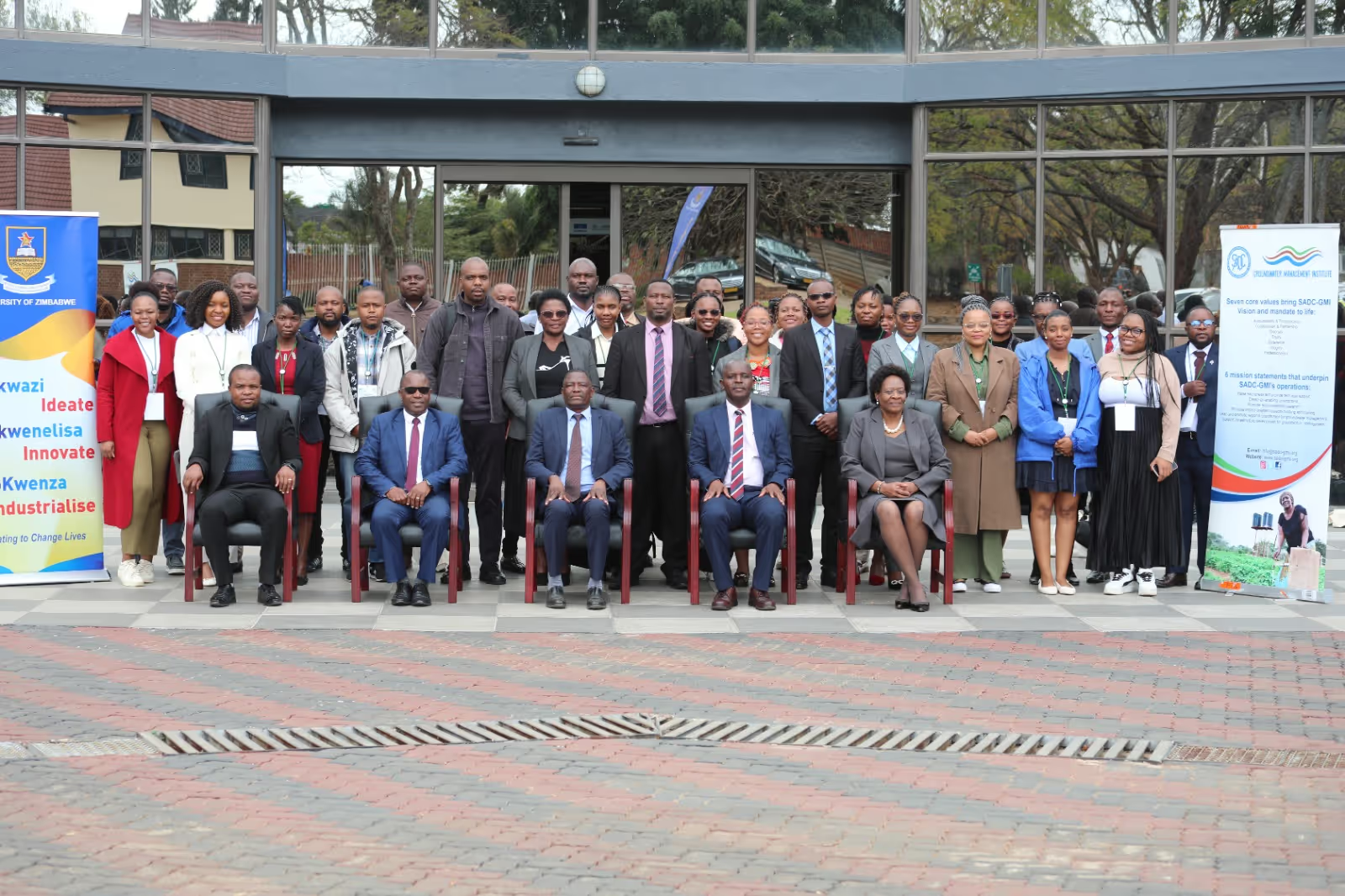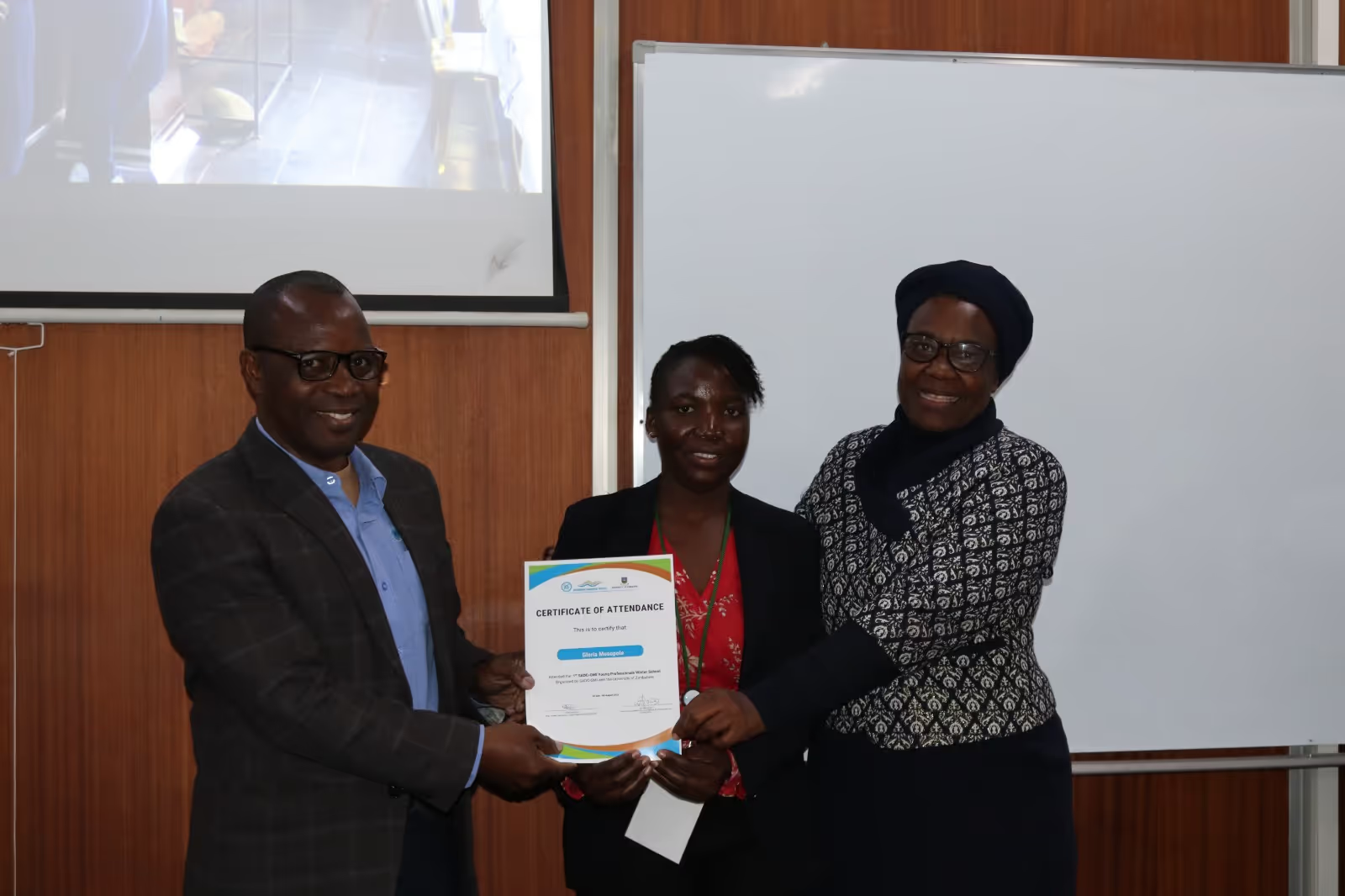Groundwater is one of those hidden treasures of our world—out of sight, but never out of mind. It’s practical, complex, and absolutely vital, especially now as climate change tightens its grip and water demands grow sharper. That’s why I believe it’s so important to keep learning, questioning, and connecting with others who share the same passion for protecting this resource.
From 28th July to 10th August, I had the privilege of taking part in the SADC-GMI Winter School. For two intense weeks, I was immersed in a space of knowledge and exchange with lecturers, practitioners, and fellow participants drawn from across the SADC region—Malawi, Zambia, Zimbabwe, Botswana, South Africa, Namibia, Lesotho, and Eswatini. It was challenging, exciting, and at times overwhelming—but above all, it was inspiring.
Prof. Meck opened my eyes to something we often take for granted: ethics in groundwater governance. In our day-to-day work, ethics can feel like an abstract layer, but in reality, one single decision can ripple across communities and ecosystems. That reminder will stay with me.
Then came Dr. Kevin Pietersen—who joked about being the “oldest young professional” in the room—alongside seasoned voices like Prof. Thokozani Kanyerere. They shared insights on drilling practices, pumping tests, and data interpretation, grounding their lessons in years of hands-on experience. Dr. Webster Gumindoga walked us through software and GIS tools like Google Earth Engine and ILWIS, making what once felt intimidating suddenly approachable. And Eng. Sauramba not only unpacked the complexities of transboundary aquifers but also shared practical wisdom on writing proposals that actually attract funding—something we all know is critical for keeping good ideas alive beyond the classroom.
One session caught me completely off guard. Ms. Anna David introduced isotopes in groundwater studies—a subject I had never really paid much attention to before. Learning how isotopes reveal the “age” of groundwater was like peering into the secret life of aquifers. It was both fascinating and humbling, a reminder that there is still so much to learn about the resource we depend on.
The field trip to the Upper Manyame Sub-catchment was another highlight. Watching colleagues in action—deploying telemetric monitoring devices, collecting water quality samples, and expanding their networks—made the theories come alive. Seeing their determination to strengthen data-driven decision-making reinforced for me that innovation doesn’t always mean reinventing the wheel; sometimes it’s about sharpening the tools we already have.
Looking back, the Winter School was more than just lectures and field visits. It was a platform to learn, to share, and to forge connections that stretch beyond borders. It reminded me that no single country, no single organization, can tackle groundwater challenges alone. Collaboration and continuous learning are not optional—they’re essential.
I am deeply grateful to the SADC-GMI team—Ms. Geetie, Ms. Smangele, Eng. James Sauramba, Ms. Anna David, Ms. Batanayi Gwangwawa, Prof. Maideyi Lydia Mabvira-Meck, and many others working behind the scenes. You created the space for young professionals like me to grow in confidence, deepen our understanding, and view our water resources through a regional lens.
As for me, I return home not only with new knowledge but with renewed purpose. At BASEflow, these lessons will not gather dust. They will shape how we approach borehole rehabilitation, how we train communities, how we strengthen monitoring networks, and how we advocate for policies rooted in ethics and evidence. The Winter School has reminded me that every choice we make—technical, financial, or ethical—can tip the scales toward sustainability. And that’s the kind of impact we owe the communities we serve.
LIke what we do ?
Please click the Download button below to get the manual and start contributing. Or if you like what we are doing and would like to support our work, click the Donate button.





